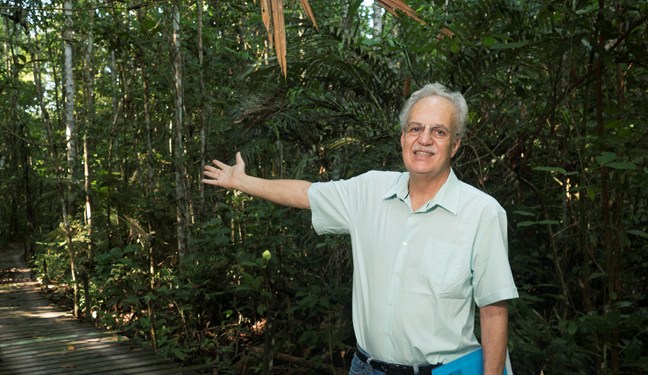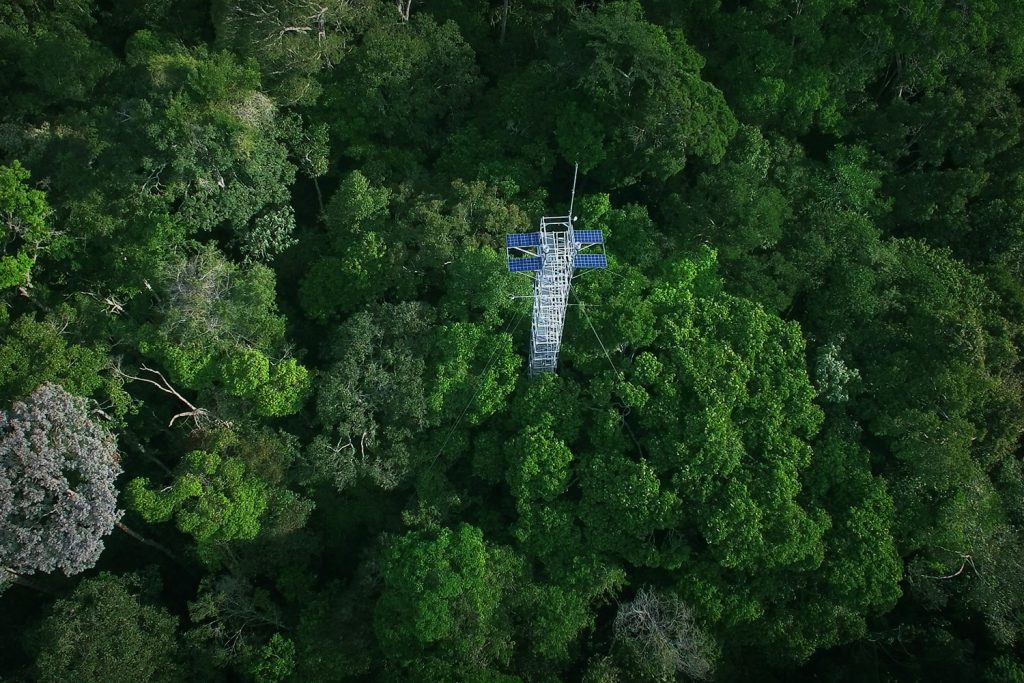Guardian of the Amazon receives the Volvo Environment Prize
Brazilian scientist Professor Carlos Nobre is the Volvo Environment Prize laureate for 2016. He gains the award for his pioneering efforts in the understanding and protection of the Amazon, one of the Earth´s most important ecosystems. The Amazon rainforests are among the richest regions on earth in terms of biodiversity.

Between 10 and 15 percent of all the species found on land live there and the woodlands store between 100 – 120 billion tonnes of carbon. The Amazon rain generates about 15 percent of all fresh water that flows into the world’s oceans. So the Amazon has a significant impact on biodiversity and climate.
Carlos Nobre has played a pre-eminent role over several decades in research into the Amazon rainforest, including cutting edge research in Earth system science, says the jury of the Volvo Environment Prize in its motivation for the 2016 award. For years there has been grave concern about the deforestation of the Amazon and the conversion of rainforests into pasture for livestock or for large-scale cultivation of crops. But development has slowed, and deforestation has fallen by nearly 80 percent over the last 10 years. New ventures in cattle farming or agriculture in rainforest areas have dropped considerably.
“It is perhaps the last place you would expect an industrial revolution to take place, but this could very well be the future for the largest tropical forest in the world.”
– It is a combination of new legislation, tougher regulations and law enforcement, but the reduced profitability of exploitation has also contributed to the change, says Carlos Nobre. He warns that logging is still at a high level, and may transform areas of rainforest into more savanna- like conditions, seriously affecting the role that the Amazon has in the global ecosystem. If warming in the Amazon exceeds 4°C or more, or if more than 40 % of the forest area is clear cut, a tipping point could be reached and forest dieback may become irreversible. However, the current trend is hopeful, he says, and highlights a new role for the Amazon.
– It is perhaps the last place you would expect an industrial revolution to take place, but this could very well be the future for the largest tropical forest in the world. Tapping the Amazon’s current biodiversity – countless living organisms, plants, animals and insects – using the latest technological advances can lead to a new industrial revolution according to Carlos Nobre.
– The world is undergoing a high-speed transformation driven by innovations in artificial intelligence, robotics, nanotechnology, synthetic biology, DNA editing and bio mimicry to name but a few. By preserving the rich and vast resources of the Amazon and combining them with this new technology, we can actually see a new future for the Amazon and its inhabitants, says Carlos Nobre.
 Tower research site
Tower research site
– Science is making rapid progress in understanding how things are created in nature, how they behave and function, and processes that took million of years to evolve. In the medium and long term, we can envision a vast number of innovations arising from the tropical forest, in Brazil and elsewhere. Besides his long academic career Professor Carlos Nobre in 2011 was appointed Secretary for Policy and Research at the Ministry of Science and Technology in Brazil. In 2013 the UN Secretary General Ban Ki Moon appointed Carlos Nobre to his newly created Scientific Advisory Board.